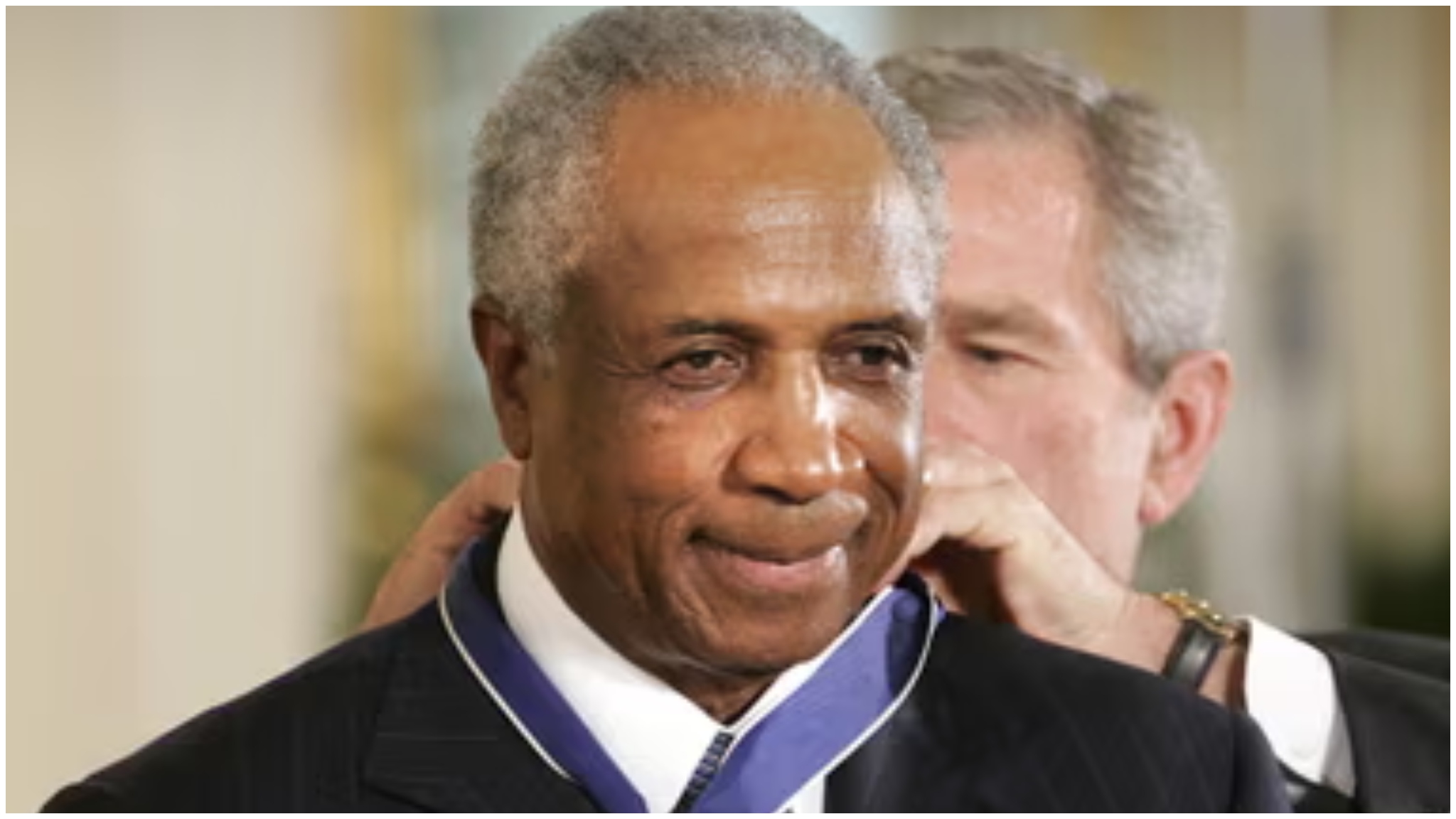Frank Robinson’s legacy as a trailblazer in Major League Baseball (MLB) is cemented not only by his legendary playing career but also by his role as the first Black manager in MLB history. This groundbreaking achievement was celebrated on April 8, 2025, as the Cleveland Guardians honored Robinson on the 50th anniversary of his historic home run debut as the team’s player-manager.
A Historic Debut in Cleveland
On April 8, 1975, Robinson made history when he hit a home run in his first at-bat as the player-manager of the Cleveland Indians against the New York Yankees. This iconic moment occurred at Municipal Stadium, marking the beginning of Robinson’s managerial career. It was an unforgettable moment in baseball history—Robinson, a Hall of Fame outfielder, not only led the team as its manager but also excelled on the field in his player role.
The impact of that home run was felt across the MLB, as it symbolized a new chapter in the sport’s racial integration. Robinson, known for his powerful bat and leadership, set the stage for future Black leaders in the sport. His leadership style was assertive and firm, yet deeply respected by his players, many of whom recall his efforts to bring young talent into the fold.
The Challenges and Triumphs of a Groundbreaking Manager
Robinson’s time as a manager was not without its challenges. He managed a team loaded with veterans, including well-known players like Gaylord Perry, Boog Powell, and John Lowenstein. But even with the experience on the roster, Robinson found himself in occasional conflict with some players.
Former Indians player Rick Manning, who played under Robinson in 1975, recalls the tough love Robinson showed, especially when it came to managing the veterans. “Frank liked the give and take in the locker room,” Manning said. “If he came at you, he expected you to give it right back.” This no-nonsense approach earned Robinson the respect of his players, despite occasional tensions in the dugout.
Manning also emphasized how Robinson’s decision to trust younger players made a significant impact on their careers. Robinson gave players like Manning and Dennis Eckersley the opportunity to prove themselves in the big leagues, which is remembered fondly by those players today.
Robinson’s Fearless Leadership Style
One of the defining characteristics of Robinson’s leadership was his unyielding stance on what was right, even if it meant confrontation. His leadership style was tested when pitcher Gaylord Perry openly disagreed with Robinson during spring training. Despite these tensions, Robinson maintained a steady course, often calling out players when necessary, but also offering a great deal of trust in their abilities.
“Robinson didn’t shy away from tough conversations, and he demanded respect,” said Duane Kuiper, another former teammate of Robinson’s. Kuiper recalled how Robinson would involve him in communication with players on the mound, even when it led to humorous exchanges. “I’d tell Perry, ‘This isn’t my idea.’ He’d always know it was Robinson’s request,” Kuiper said with a laugh.
A Memorable Moment: Robinson vs. Reynolds
One of the most dramatic moments in Robinson’s managerial career came in Toledo when pitcher Bob Reynolds, upset about being sent to the minors, threw a fastball at Robinson during a game. Robinson responded in true fashion—he charged the mound and threw three punches, knocking Reynolds down. The altercation ended with Robinson being ejected from the game, but it also solidified his reputation as someone who would not back down from a challenge.
Despite these tense moments, Robinson’s influence remained undeniable. He created a sense of unity among his team, even in the face of adversity. His ability to manage under pressure was something that stood out to his players, like Manning and Kuiper, who admired his unwavering commitment to the team and his players.
Robinson’s Legacy Beyond Cleveland
Although Robinson’s time with the Indians was brief—he was fired mid-season in 1977—his impact was lasting. He continued his managerial career with the San Francisco Giants, the Baltimore Orioles, the Montreal Expos, and the Washington Nationals. Each team benefited from his leadership and expertise, further solidifying his legacy as a pioneer in the sport.
Manning, reflecting on his time playing for Robinson, said, “I felt I should have made the opening day roster, but Robinson told me, ‘I wanted all of you up there.’” Manning also spoke at the ceremony unveiling Robinson’s statue at Progressive Field in 2017, remembering his former manager fondly for the trust he placed in younger players.





